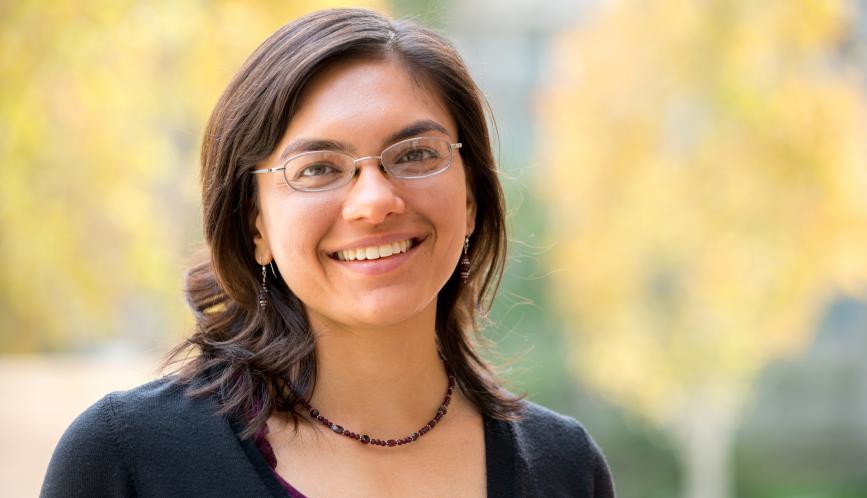MIP network member Manasi Deshpande is an Assistant Professor of Economics at the University of Chicago and a faculty research fellow at the National Bureau of Economic Research. Her research areas are empirical public finance and labor economics, with a focus on the effects of social insurance and public assistance programs and their interaction with labor markets. Her dissertation on the long-term effects of disability programs received the 2015 APPAM Dissertation Award, the 2015 Upjohn Institute Dissertation Award, and the 2016 NASI John Heinz Dissertation Award. She received a Ph.D. in economics from the Massachusetts Institute of Technology in 2015. In 2017, Deshpande was a faculty member of HCEO’s Summer School on Socioeconomic Inequality Chicago.
Describe your area of study and how it relates to current policy discussions surrounding inequality.
I study social insurance and public assistance programs, and in particular how these programs affect individual decisions about work, education, and family formation, as well as the effects of these programs on health and well-being. All of these programs involve tradeoffs: they provide income and other resources to people during times of need, but they also have the potential to discourage achievement or create perverse incentives to qualify. The political debate over the social safety net tends to be characterized by extremes. Programs are either derided as boondoggles that sow indolence and sap work ethic, or their potential perverse incentives are dismissed entirely. The truth is probably somewhere in between, and is only knowable by examining the data. Theory is helpful in telling us what effects are possible, but the magnitudes of these effects—and sometimes even their direction—are empirical parameters. In my research, I find ways to estimate these empirical parameters.
What areas in the study of inequality are most in need of new research?
We have substantial research on how social safety net programs affect work activity, but surprisingly little evidence on how these programs affect other long-term outcomes like consumption, health, and well-being. For example, we have almost no evidence on how disability insurance affects health outcomes, even though this program provides health insurance and substantial cash benefits in a targeted way to people with disabilities. I think the main reason for this gap in research is data limitations, and we will hopefully be able to answer more of these pressing questions as new sources of data become available.
What advice do you have for emerging scholars in your field?
The most important advice of course is to find a topic that excites you and commands your attention even outside of work, since you will do better research and be happier this way. I have found it helpful to keep a working document of big-picture research questions that interest me. Individual research projects can sometimes feel tedious and narrow, especially when are doing the hundredth robustness check. It’s useful to remind ourselves about the overarching questions that motivate us and how individual projects contribute to answering them.



